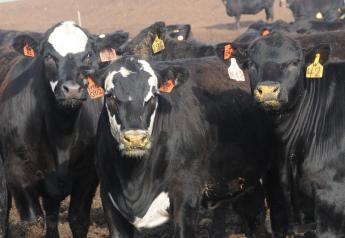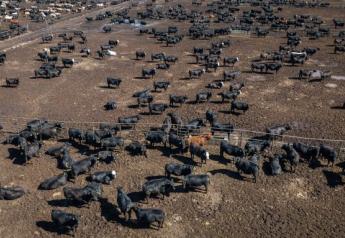Meat of the Matter: Ag Gag۪s Gone For Good?

In a ruling last week, U.S. District Court Judge Robert Shelby agreed with the Animal Legal Defense Fund and PETA that Utah’s “ag-gag” law violated the plaintiffs’ free speech rights.
The opening paragraph of the judge’s decision in Animal Legal Defense Fund, et al, v. Gary R. Herbert and Sean D. Reyes (Utah’s governor and attorney general, respectively) spells it out:
“Utah’s so-called ‘ag-gag’ laws target undercover investigations at agricultural operations … by criminalizing both lying to get into an agricultural operation and filming once inside. Plaintiffs contend the law violates their First Amendment rights. The court agrees.”
The law, which was originally enacted by the Utah legislature in 2012, prohibited making photos or videotaping inside agricultural operations. The intent, as was expressed in testimony at the time, according to multiple news sources, was to shut down the practice of animal activists who got themselves hired at feedyards or packing plants, only to spend their time capturing covert video clips that industry officials often accused the perpetrators of later doctoring to exaggerate so-called abuses.
As FOX News13 in Salt Lake City reported on its website, one of the plaintiffs in the case was a woman named Amy Meyers, an animal rights leader, who was arrested in 2013 for standing on the sidewalk outside a beef plant filming a cow being moved into the plant. Ultimately, the charges against her were dismissed in court.
That case is what triggered the lawsuit. As Fox News reported, the animal rights groups argued in court that the state’s ag-gag law was passed to target them specifically. In their legal brief, they claimed that Utah Republican Sen. David Hinkins “elaborated that in his view the law was necessary because the vegetarian groups are ‘terrorists.’”
It’s tempting to ask these animal activists, “So what’s your point?”
Good Decision on a Bad Law
Lying your way into a business operation, then capturing video clips for public distribution cannot be condoned under the First Amendment. And there is absolutely no doubt that the activists who utilize these tactics have motives well beyond some noble desire to enlighten the public.
But here’s the problem. First of all, Ms. Meyers had a plausible defense. Because she was arrested while on a public sidewalk, her defense on the basis of her First Amendment rights was solid.
That overreach on the part of Utah law enforcement undoubtedly influenced the court’s decision. Judges tend to rule on the case before them, based on the evidence presented. In Meyers’ case, there was clear evidence that a law that triggers the arrest of citizens operating a camera in public is fraught with potential civil rights problems.
That leaves the intent of various ag-gag laws, including Utah’s, up in the air. As originally conceived, many of these laws were aimed not necessarily at activists making videos, but against groups or individuals who disparaged food or agricultural products on the basis of food safety, nutrition or other alleged problems.
Given the perishable nature of crops and food products, a public scare about the safety or wholesomeness of an edible commodity could cause serious damage to companies in the marketplace, even if the accusations were later proven to be false or exaggerated.
It’s the agricultural equivalent of someone making accusations of sexual impropriety against a public official. Even if the charges are later dismissed for lack of evidence, the damage to the person’s reputation tends to be permanent.
Despite the ruling on the Utah ag-gag law, there remains the issue of activists dishonestly getting into animal agriculture facilities to capture incriminating video clips. That cannot be condoned, nor somehow permitted under the law.
Judge Shelby himself noted in his decision that, “Utah undoubtedly has an interest in addressing perceived threats to the state agricultural industry, and as history shows, it has a variety of constitutionally permissible tools at its disposal to do so. Suppressing broad swaths of protected speech without justification, however, is not one of them.”
Fair enough.
What needs to happen is passage of a better, more narrowly crafted law that protects free speech while criminalizing dishonesty and making illegal the production of unauthorized videos within a private business operation. There are genuine issues of private property rights and protection of proprietary business information at stake, because the activists aren’t going away, and this kind of undercover activity isn’t going to stop.
According to news reports, Sen. Hinkins said last week that he and his colleagues plan to review the judge's ruling and re-write the law.
“We’ll take a look at the bill and I’ll introduce it in the next session, and see if we can’t get this straightened out,” he said.
A spokesman for Utah Attorney General Sean Reyes’ office told FOX News13 that, “We are reviewing the opinion and considering our options.”
Let’s hope one of those options is passage of a law that protects the rights of agricultural operators, as well as those of the people working to undermine their businesses.
In the wake of the ruling Ms. Meyers issued a statement saying, “Today’s court ruling is a vindication for anyone who stands up for what’s right and tells the truth.”
Let’s hope her victory is extremely short-lived.
Editor’s Note: The opinions in this commentary are those of Dan Murphy, a veteran journalist and commentator.







